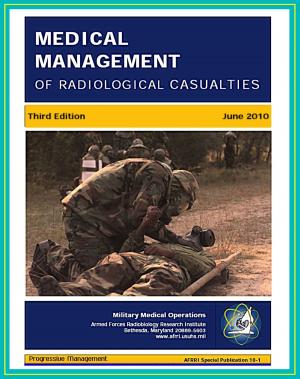Guide to Ending Wars and Conflicts: War Termination Conference, Learning to Leave, Disengagement in U.S. Military Strategy, Perspectives from 1847 and Iraq War 2003, Theory, Doctrine, and Practice
Nonfiction, History, Military, Strategy| Author: | Progressive Management | ISBN: | 9781310658761 |
| Publisher: | Progressive Management | Publication: | April 17, 2015 |
| Imprint: | Smashwords Edition | Language: | English |
| Author: | Progressive Management |
| ISBN: | 9781310658761 |
| Publisher: | Progressive Management |
| Publication: | April 17, 2015 |
| Imprint: | Smashwords Edition |
| Language: | English |
Professionally converted for accurate flowing-text e-book format reproduction, this compilation of four important papers and documents provides unique insight into the issue of terminating wars and conflicts. Contents: War Termination: The Proceedings of the War Termination Conference * Learning to Leave: The Preeminence of Disengagement in US Military Strategy * Effective Termination of Conflict: Perspectives From 1847 and 2003 * War Termination: Theory, Doctrine, and Practice.
Proceedings of the War Termination Conference - This conference investigates war termination, one of the most important issues facing military and political leaders as they use or contemplate the use of use of military force in the pursuit of national aims. Prompted by the Unified Quest Training and Leader Development theme and discussions about the use of history in training and leader development, the US Army Training and Doctrine Command and the United States Military Academy partnered on this war termination project and invited renowned military historians to provide their views on the subject. The study began with several seminars following Unified Quest in May of 2009. Each contributor provided a brief essay and presented their views on the topic at a War Termination Conference at West Point in June of 2010. These scholars represented a broad range of the American experience from the Revolutionary War to the first Gulf War. The assembled essays and interviews reflect the thoughts of these historians about America's wars, their concluding battles or final campaigns, and ultimately how they ended. While they provide no answers and no formula for successful war termination, they do provide thoughtful reflections from years of study and they suggest important implications for civilian and military decisionmakers today. Among the discoveries of this project is that war termination is a curiously neglected topic. Little has been written about the subject that is of practical use in educating military leaders. This project represents an important first step to raise awareness and enrich the Army's leader development as well as education and training. This volume is intended to support instructors and students in academic courses, seminars, and individual study focused on the topic of war termination in the hope of answering these important questions: What is the American experience? How has America ended its wars? What can we learn from that experience?
Learning to Leave: The Preeminence of Disengagement in U.S. Military Strategy - National security strategy (NSS) changes from president to president. These changes are often referred to as doctrines. Some represent explicit grand strategy, while others require examinations of policy to ferret out. Their enduring traits, however, are most important to national military strategy (NMS). What has endured in America's superpower experience since World War II is that the United States engages forward in times of peace and fights forward in times of war.
Effective Termination of Conflict: Perspectives From 1847 and 2003 - This paper will examine General Scott's campaign in central Mexico focusing on his counter-insurgency (COIN) operation. It will seek to determine the elements of his COIN strategy that enabled the United States Army to quell the Mexican insurgency to facilitate termination of the war in a manner favorable to the United States. In the process, it will discuss what concepts the strategic planner might have considered in Iraq, and finally, if those items have relevance for the future. Our review will begin with the strategic setting and then provide a survey of Scott's campaign. It will then analyze the Iraq campaign of 2003 before wrapping up with the important elements of a full spectrum strategy that could facilitate future strategic planning.
Professionally converted for accurate flowing-text e-book format reproduction, this compilation of four important papers and documents provides unique insight into the issue of terminating wars and conflicts. Contents: War Termination: The Proceedings of the War Termination Conference * Learning to Leave: The Preeminence of Disengagement in US Military Strategy * Effective Termination of Conflict: Perspectives From 1847 and 2003 * War Termination: Theory, Doctrine, and Practice.
Proceedings of the War Termination Conference - This conference investigates war termination, one of the most important issues facing military and political leaders as they use or contemplate the use of use of military force in the pursuit of national aims. Prompted by the Unified Quest Training and Leader Development theme and discussions about the use of history in training and leader development, the US Army Training and Doctrine Command and the United States Military Academy partnered on this war termination project and invited renowned military historians to provide their views on the subject. The study began with several seminars following Unified Quest in May of 2009. Each contributor provided a brief essay and presented their views on the topic at a War Termination Conference at West Point in June of 2010. These scholars represented a broad range of the American experience from the Revolutionary War to the first Gulf War. The assembled essays and interviews reflect the thoughts of these historians about America's wars, their concluding battles or final campaigns, and ultimately how they ended. While they provide no answers and no formula for successful war termination, they do provide thoughtful reflections from years of study and they suggest important implications for civilian and military decisionmakers today. Among the discoveries of this project is that war termination is a curiously neglected topic. Little has been written about the subject that is of practical use in educating military leaders. This project represents an important first step to raise awareness and enrich the Army's leader development as well as education and training. This volume is intended to support instructors and students in academic courses, seminars, and individual study focused on the topic of war termination in the hope of answering these important questions: What is the American experience? How has America ended its wars? What can we learn from that experience?
Learning to Leave: The Preeminence of Disengagement in U.S. Military Strategy - National security strategy (NSS) changes from president to president. These changes are often referred to as doctrines. Some represent explicit grand strategy, while others require examinations of policy to ferret out. Their enduring traits, however, are most important to national military strategy (NMS). What has endured in America's superpower experience since World War II is that the United States engages forward in times of peace and fights forward in times of war.
Effective Termination of Conflict: Perspectives From 1847 and 2003 - This paper will examine General Scott's campaign in central Mexico focusing on his counter-insurgency (COIN) operation. It will seek to determine the elements of his COIN strategy that enabled the United States Army to quell the Mexican insurgency to facilitate termination of the war in a manner favorable to the United States. In the process, it will discuss what concepts the strategic planner might have considered in Iraq, and finally, if those items have relevance for the future. Our review will begin with the strategic setting and then provide a survey of Scott's campaign. It will then analyze the Iraq campaign of 2003 before wrapping up with the important elements of a full spectrum strategy that could facilitate future strategic planning.















